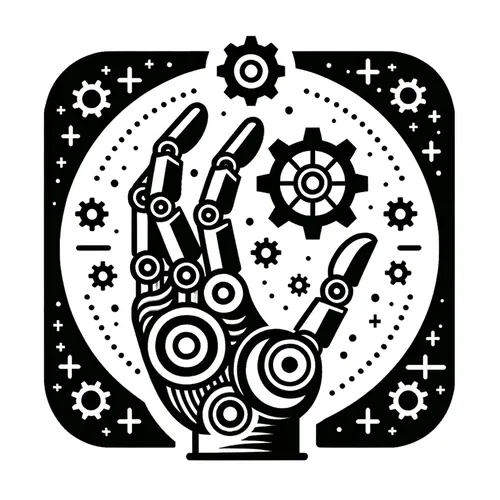Robots Rule: AI-Powered Automation Shakes Up the Factory Floor
- Author
- Quiet. Please
- Published
- Wed 23 Jul 2025
- Episode Link
- https://www.spreaker.com/episode/robots-rule-ai-powered-automation-shakes-up-the-factory-floor--67083292
This is you Robotics Industry Insider: AI & Automation News podcast.
Industrial robotics and automation are surging ahead, marked by a mix of milestone product launches, technical breakthroughs, and renewed global investment. June and July 2025 have delivered some notable headlines, especially from Automatica 2025 in Munich, where ABB Robotics showcased its new generation of heavy-duty industrial robot arms and an advanced autonomous mobile robot for flexible indoor logistics. ABB’s latest IRB 6730S and 6750S models stand out for their overhead installation capability and high payload, tailored for automotive spot welding and die casting lines. Emphasizing the shift toward “Autonomous Versatile Robotics,” ABB’s president of robotics, Marc Segura, highlights how today’s machines must be mobile, dexterous, and driven by AI, able to autonomously switch tasks as production demands evolve.
The collaboration trend also remains strong, with the global collaborative robot market—known as the cobot market—projected to grow at nearly twelve percent annually, reaching over two billion dollars by 2031. This shift is driven in large part by the need for robots that can safely work alongside, and even empower, human operators on factory floors. Mitsubishi Electric’s recent focus on cobots to bridge industry skills gaps reflects how major vendors are addressing both productivity gains and workforce upskilling.
Marketwide, the industrial automation sector is valued at north of two hundred fifty billion dollars in 2025, with forecasts suggesting the market will more than double by 2034 according to Precedence Research. Integrated robotics and artificial intelligence are at the core of this expansion. AI-driven robots not only deliver precision and productivity—they also predict machine failures, optimize supply chain logistics, and enable companies to pivot more quickly during global supply chain disruptions. These benefits are making automation foundational for trends like manufacturing reshoring, where US data shows industrial robot operation up eighty-eight percent over the past decade as domestic supply chains are rebuilt.
Listeners should note several industry-defining stories from the past week: Kuka’s follow-up contract for friction welding cells ties directly to surging electric vehicle production in the US; Mujin has announced a global executive team to fast-track commercial adoption of its intelligent robot controller platform; and tariffs remain a wildcard, but the consensus is that automation forms the backbone for long-term manufacturing competitiveness, regardless of shifting policy.
For industrial leaders and engineers, the practical takeaway is clear: invest now in robotics, AI integration, and workforce upskilling to secure a durable advantage during this next cycle. Prioritize technologies that offer plug-and-play flexibility, real-time data-driven insights, and seamless human-robot collaboration. As manufacturers increasingly seek resilient, cost-efficient models, adoption of modular robotics and AI-powered automation is set to accelerate, especially in North America and Asia Pacific, where growth rates outpace global averages.
Looking to the future, expect an era of adaptive and learning robots, capable not only of replacing repetitive labor but also collaborating on complex workflows and even managing other autonomous systems. The result is a smarter, safer, and more sustainable industrial landscape. Thanks for tuning in to Robotics Industry Insider: AI and Automation News. Join us next week for more on breakthrough technology and industry strategy. This has been a Quiet Please production, and for more, check out Quiet Please Dot AI.
For more http://www.quietplease.ai
Get the best deals https://amzn.to/3ODvOta
